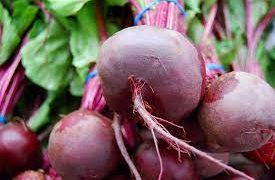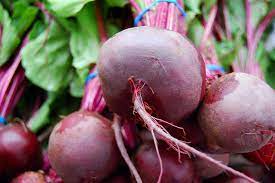Beets are an important crop for farmers, providing a valuable source of nutrition and income. However, like any other crop, beets can be affected by various diseases, both infectious and non-infectious. While infectious diseases are caused by pathogens such as fungi, bacteria, and viruses, non-infectious diseases have different causes, including nutrient deficiencies, environmental stresses, and genetic factors. In this article, we will focus on non-infectious diseases of beets and provide information on their symptoms, causes, and management strategies.
One of the most common non-infectious diseases of beets is leaf scorch, which is caused by water stress, high soil salinity, or excessive fertilizer application. According to a study published in the Journal of Plant Nutrition and Soil Science, leaf scorch can reduce beet yields by up to 50%. Symptoms of leaf scorch include yellowing and browning of leaf margins, wilting, and stunted growth.
Another non-infectious disease that can affect beets is tipburn, which is caused by a deficiency in calcium or boron. Tipburn causes the edges of the leaves to turn brown, wither, and die. In severe cases, tipburn can affect the entire plant, leading to reduced yield.
Other non-infectious diseases that can affect beets include root cracking, which is caused by fluctuations in soil moisture and temperature, and internal necrosis, which is caused by calcium or magnesium deficiency.
To manage non-infectious diseases of beets, farmers can take several steps, including soil testing to identify nutrient deficiencies, proper irrigation management, and application of appropriate fertilizers. In the case of leaf scorch, reducing water stress through proper irrigation and drainage can be effective in preventing the disease. For tipburn, applying calcium or boron fertilizers can help prevent the deficiency that causes the disease.
In conclusion, non-infectious diseases of beets can have a significant impact on crop yields and profitability. Farmers and growers need to be aware of the symptoms and causes of these diseases and take appropriate management measures to minimize their impact. Soil testing, proper irrigation management, and fertilizer application are some of the key strategies that can be used to manage non-infectious diseases in beets.
Tags: Beets, non-infectious diseases, leaf scorch, tipburn, root cracking, internal necrosis, nutrient deficiencies, soil testing, irrigation management, fertilizer application.































